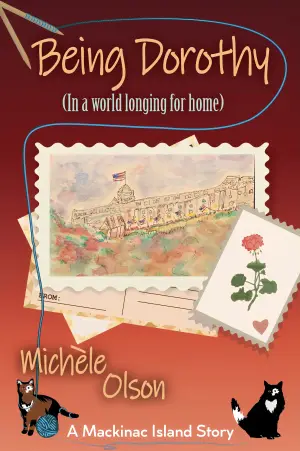The Love Hypothesis by Ali Hazelwood: A Mixed Bag of Academic Romance
As a book blogger, I often find myself falling head over heels for a good romance, especially when it promises to intertwine with academic pursuits like in The Love Hypothesis by Ali Hazelwood. The melding of a PhD life and a steamy yet fake relationship piqued my curiosity. However, my experience was a little like that awkward first kiss—filled with potential yet lacking the exhilarating spark.
The Love Hypothesis introduces us to Olive, a determined PhD student in a male-dominated biology program who concocts a scheme to demonstrate to her best friend that she’s moved on from her ex. By kissing Dr. Adam Carlsen, the unapproachable professor, she unwittingly sparks a faux relationship that propels the narrative. While the premise is enticing, I often found myself questioning Olive’s decisions, particularly her impulsive kiss. Sure, it led to a fun romance trope, but it felt dissonant with her established academic rigor.
One of the book’s standout aspects is Olive’s representation as a woman in STEM. Her experiences resonate with those of us in similar fields—feeling sidelined and underestimated. I appreciated how Hazelwood captured the nuances of academic life, and Olive’s voice lent authenticity to her struggles, albeit making me wish for a deeper exploration of her character beyond her role as a student.
That brings me to Adam. His character, meant to embody the quintessential brooding intellectual, often felt flat and bland. I wanted to dig deeper into his psyche, understand his motivations, and see him come alive on the page. Despite Olive’s earnest feelings for him, I struggled to grasp what made him loveable. Their chemistry, while essential, appeared more like platitudes at times. Even scenes meant to exude intimacy fell flat, feeling forced rather than organic.
The writing style itself is accessible; however, the emotional depth often seemed missing. Moments that should have made me swoon instead made me roll my eyes or scratch my head in frustration. Sure, there were hints of humor, but I frequently found them overshadowed by moments that felt contrived or juvenile—particularly in how secondary characters, like Olive’s best friend Anh, were portrayed.
In embracing themes like belonging, academic pressure, and the complexities of romantic relationships, The Love Hypothesis has potential. Yet, those themes were sometimes overshadowed. Representation of Olive’s possibly demisexual identity could have added layers, but instead felt glossed over, lending itself to a discussion-worthy but ultimately unfulfilled aspect of her character.
At the end of the day, if you’re drawn to a narrative rich in academic life with diverse representation, The Love Hypothesis may still tug at your heartstrings. But if, like me, you prefer well-rounded characters and organic chemistry, you might find it lacking. My experience was a curious mix of frustration and reflection, urging me to consider not just the plot’s appeal but also the choices made within it.
In essence, this book might resonate well with readers who love lighthearted romance in an academic backdrop, but those seeking depth—both in characters and story—may be left wanting. Whether you’ll savor the moments or nod along in agreement to my critiques, well, I think that’s the beauty of literature—it’s often not the book, but our unique lenses through which we read it.







